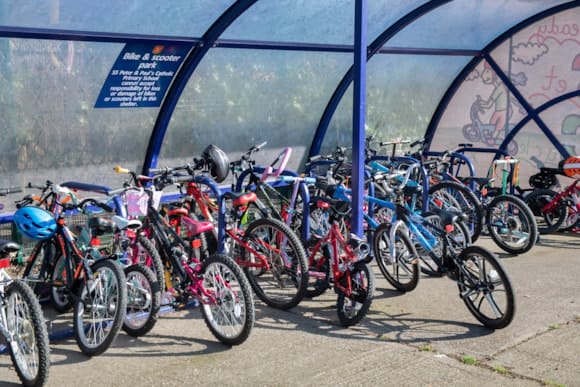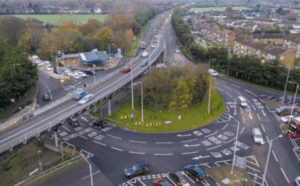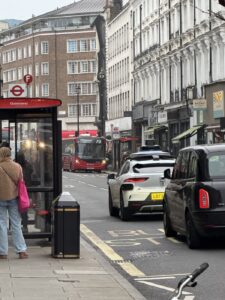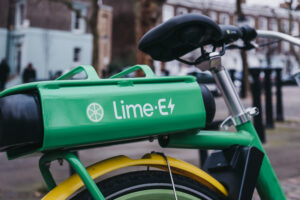TfL is calling on London schools to sign up to its TfL Travel for Life programme to reap the health benefits of walking and cycling and improve air quality, and the safe use of public transport
The programme has seen a 10 per cent increase in schools receiving Gold accreditation, which is achieved by reducing car use by six per cent or 90 per cent of school journeys being made on sustainable transport
Schools in London boroughs of Bromley, Islington and Havering are leading the way with the highest proportion of their schools achieving Gold accreditation
In December the Mayor of London launched his Greener Schools pilot, set up to help schools spend less on their energy bills and more on children’s education
As the new term starts Transport for London (TfL) is calling on London schools to join its accreditation programme to encourage sustainable travel to school, to help improve air quality, health and safety. It follows a 10 per cent increase in schools achieving the highest ‘Gold’ status last academic year.
TfL’s Travel for Life programme supports the next generation of Londoners to travel towards a brighter, safer and more sustainable future. By completing activities that promote walking and cycling to school and the safe use of public transport, primary and secondary schools can become Bronze, Silver or Gold accredited. The programme is administered by London Transport Museum in partnership with London’s Borough Officers.
To achieve Gold accreditation, a school must have reduced car use by six per cent or achieved 90 per cent of the school run being made using sustainable transport. The number of schools awarded Gold in 2024 was 735, a 10 per cent increase compared to 2023.[1]
Bromley currently has the largest proportion of Gold schools, at an impressive 63 per cent, followed by Islington at 49 per cent and Havering at 45 per cent.[2] Meanwhile Waltham Forest currently has the largest overall number of schools participating in the TfL Travel for Life programme, with 81 per cent of its schools involved. Bromley and Islington also have large numbers of schools participating, with 74 and 71 per cent of schools respectively.[3]
St Gregory’s Catholic Science College in Brent recently achieved Gold accreditation, having only signed up to TfL Travel for Life in March 2023. With a motto “swap the ride for a park for a park and stride,” the school is taking several actions including measuring the air quality in its immediate surroundings, holding assemblies and creating a podcast on active travel.
TfL Citizens, delivered by London Transport Museum, is one of the five TfL Travel for Life programmes and is for children aged 10-11. It now has more than 100,000 pupils and 91 per cent of London schools taking part, preparing children for travelling to secondary school and teaching skills such as journey planning.
Numerous studies point to the health benefits of walking and cycling to school, with national charity Living Streets citing improvements in mood and behaviour in children who travel on foot.[4] With the Government’s target for 55 per cent of primary school aged children walking to school by 2025,[5] TfL is calling on London schools not currently participating in TfL Travel for Life to sign up to the scheme, to reap the benefits of better air quality and improved health.
Fewer parents driving children to school also improves road safety, as TfL works to eliminate all deaths and serious injuries from London’s transport network as part of its Vision Zero programme. Following several measures taken by TfL, there has been sustained improvement in safety for under-16s on London’s roads. In 2023, the number of children killed or seriously injured on London’s roads reduced by 40 per cent against TfL’s 2010-14 baseline.[6]
London’s Walking and Cycling Commissioner, Will Norman, said: “The New Year is the perfect time to introduce children to sustainable travel so I would encourage as many schools as possible to join this fantastic scheme which improves the environment and supports fit and healthy lifestyles. We know that children who are introduced to active travel from a young age are more likely to continue the habit into adulthood – and it would be great to see even more schools involved this year.”
Lilli Matson, TfL’s Chief Health, Safety & Environment Officer, said: “Clean air is fundamental for a London where every young person can thrive. Walking and cycling to school cuts out the harmful emissions from cars, and also gets children active, benefitting them both inside and outside the classroom. It’s so encouraging to see growing numbers of schools achieving Gold accreditation and we need to keep that momentum going, and so if your school makes just one New Year’s Resolution for 2025, we would love for you to sign up to TfL Travel for Life.”
A teacher from St Gregory’s Catholic Science College, said: “As TfL Travel Pioneers, we have not only affected the environmental impact of students in 2024 but we have actually made such a change that other students in future years might use our resources and knowledge to make better travel choices, helping to reduce their carbon footprint. We are really proud of what we have achieved, in getting more pupils to ditch the ride for a park and stride and in achieving Gold accreditation.”
A year 8 pupil from St Gregory’s Catholic Science College, who took part in air quality monitoring near the school, said: “I realised how much harmful polluted air there is that we breathe in, in our daily lives, for example on the roads. This trip made me more aware of environmental issues and inspired me to advocate for cleaner air and take action to protect the environment and the wellbeing and health of humans.”
Elizabeth McKay, Director and CEO at London Transport Museum, said: “A big part of what we do at London Transport Museum is giving young people the skills, opportunities and confidence for the future. This includes working together to make greener choices, and so we’re incredibly proud to collaborate with TfL and the London Boroughs on the delivery of Travel for Life. The recent increase in Gold accredited schools is inspiring – demonstrating young Londoners’ and schools’ commitment to a healthier, brighter, and more sustainable city.”
The Mayor of London, Sadiq Khan launched in December his Greener Schools pilot, set up to help schools spend less on their energy bills and more on children’s education. The new initiative is part of his manifesto commitment to help schools in London reduce their carbon emissions and save money during a cost-of-living crisis. London boroughs can apply for part of £2 million of funding available for a range of interventions, including insulation, solar panels and heat pumps – while also funding climate engagement activities.
PIC-TfL
























